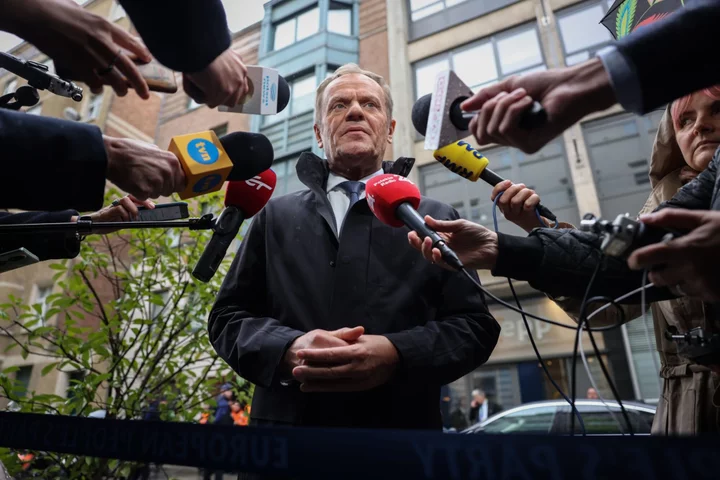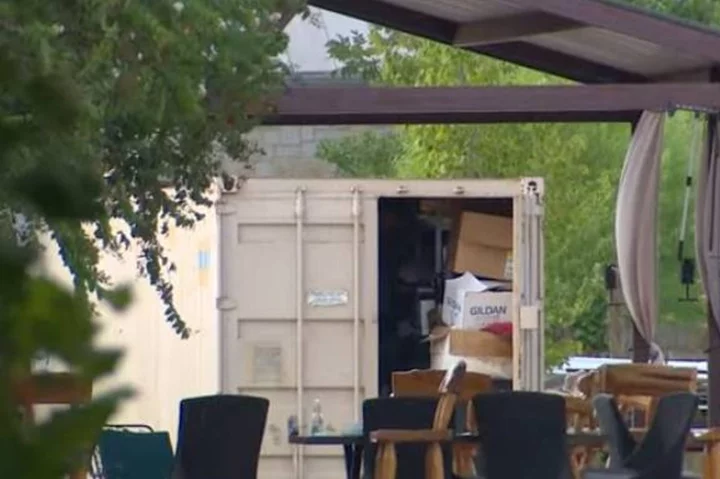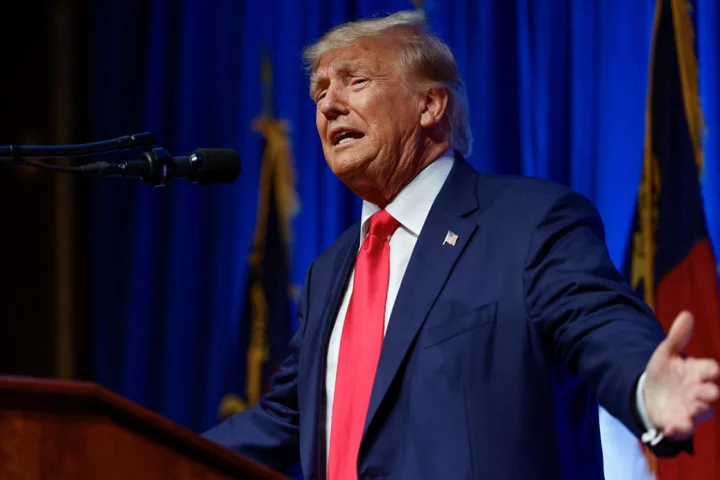Poland is expected to access some additional European Union financing by the end of the year, as opposition leader Donald Tusk prepares to take over the country’s premiership.
The European Commission, the EU’s executive arm, plans in the coming weeks to sign off on a request by Poland’s nationalist government to tap a portion of around €2.8 billion ($3 billion) in aid earmarked to wean member states off Russian energy, a person familiar with the matter said.
Once EU finance ministers confirm the commission’s decision at a Dec. 8 meeting, Warsaw will be able to tap a tranche of about €550 million in pre-financing not subject to conditions, according to the person, who declined to be named as talks take place behind closed doors.
Access to the funds would be within days of Tusk taking office. The former European Council president delivered an upset victory in Poland’s election last month and has laid out plans with opposition parties to oust the nationalist Law & Justice from power after eight years in office.
Tusk has said his priority is to restore relations with the bloc, which has withheld funding on concerns over the erosion of independent institutions in Poland and the rule of law. His government will face heavy lifting in completing reforms to access a total of €60 billion in financing.
The opposition leader traveled to Brussels days after the Oct. 15 vote, promising to push for the release of funds this year.
“We are of course waiting for a new government to see if a certain number of reforms can be envisaged, we will assess what has been done these last months,” Didier Reynders, European commissioner for justice, told reporters in Brussels Wednesday ahead of a meeting of home-affairs ministers.
Tusk’s allies signed a coalition pact last week, but a new coalition will have to wait until next month to take power after President Andrzej Duda appointed incumbent Prime Minister Mateusz Morawiecki to make a first attempt at forming a government. The Law & Justice premier will have about a month to do so, a remote prospect without a majority.
Should Morawiecki fail, the decision goes to parliament, which is set to designate Tusk. Based on parliamentary procedure, the election winner could take office as early as Dec. 11.
The EU has blocked the release of more than €35 billion in post-pandemic aid to the Law & Justice government, particularly raising issues with an overhaul of the judiciary that tightens political influence over judges.
Morawiecki’s government requested a top-up in funding in August as part of the bloc’s RePowerEU program, which is designed to help member states develop alternatives energy sources after Russia’s war in Ukraine upended the region’s market. A decision on funds next month would come ahead of an end-of-year deadline to allocate the money.
Once approved, the program would bring the total amount of available aid for Poland to almost €60 billion in grants and loans. But further access will involve conditions, including completing reforms to the judiciary.
The effort may present a challenge for Tusk. Duda, a former Law & Justice lawmaker, has veto powers over legislation, which the current opposition may struggle to overturn. Earlier this year, the president threw a plan to obtain financing into turmoil after sending it to a top court for review.
--With assistance from John Follain.
(Updates with reform challenge, commission comment from fifth paragraph.)









